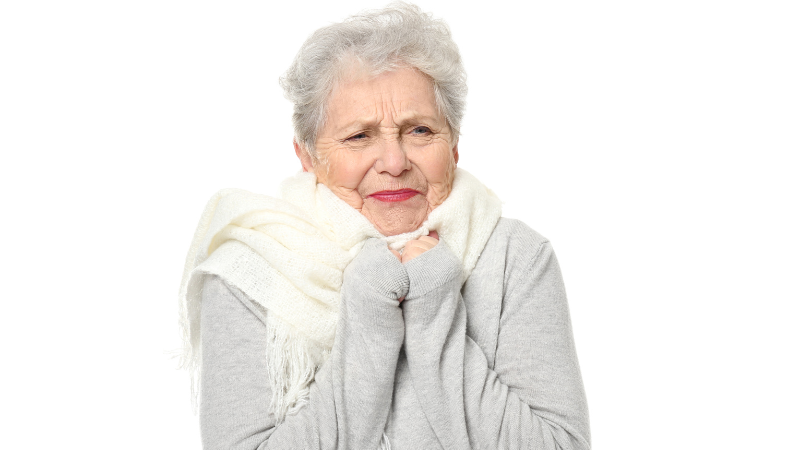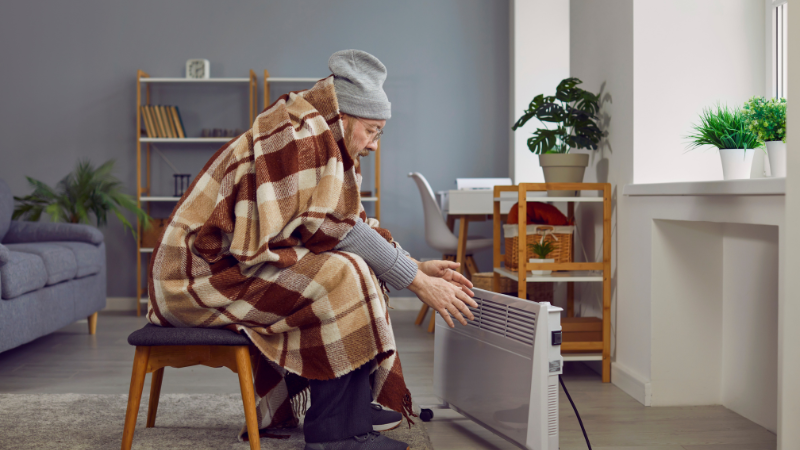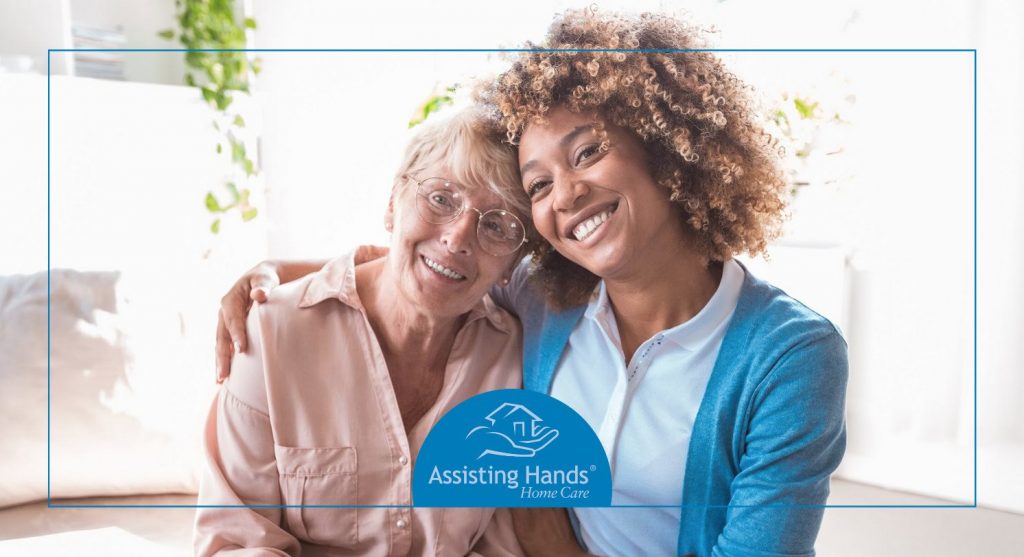

As we grow older, we often find ourselves facing hurdles with our health. One thing we might not pay much attention to is feeling cold all the time. Some might just brush it off as a normal part of aging, but new research suggests that being constantly chilly when you’re older could be a hint that there’s something else going on health-wise. Paying attention to your senior loved ones is important to catch any signs and take good care of them in a thorough way.
Experiencing shivers as you age isn’t merely a matter of comfort; it might be your body signaling potential health concerns. So, when we’re looking out for our seniors, it’s not just about noticing the big stuff; it’s about catching these small signals that could lead us to hidden health puzzles that need solving. Let’s find out why seniors often experience persistent cold sensations and what could be the reasons behind it?
Why do Seniors Always Feel Cold?
- As seniors age, their bodies naturally experience a decline in metabolic rate, reducing the ability to generate heat. This change makes seniors more sensitive to cooler temperatures, resulting in a constant feeling of coldness.
- With aging, the fat layer beneath a senior’s skin begins to thin. This essential layer, responsible for retaining body heat, diminishes over time, leaving seniors more vulnerable to feeling cold.
- Reduced blood flow to the extremities, such as hands and feet, is common as seniors age. This can lead to a diminished ability to distribute heat throughout the body, making seniors more prone to the sensation of cold.
- Some seniors may be more prone to dehydration, which can compromise blood volume and circulation. Inadequate hydration can make it challenging for the body to maintain a stable temperature.
Common Reasons Behind the Cold Sensation Among Seniors

Below are 6 significant factors that can increase the sensitivity to cold in elderly individuals that caregivers and family members should pay attention to:
- Cardiovascular Disease: Elderly individuals grappling with cardiovascular diseases, such as heart failure or peripheral artery disease, might find themselves more sensitive to the cold. This heightened sensitivity is often linked to poor circulation, a prevalent symptom of these conditions, which hampers blood flow to extremities, resulting in colder hands and feet. Furthermore, compromised heart function can disrupt the body’s temperature regulation, rendering them more susceptible to chilly sensations.
- Anemia: Seniors may feel more sensitive to cold due to anemia, a condition characterized by a low count of red blood cells or decreased hemoglobin levels. Hemoglobin is crucial for transporting oxygen to the body’s tissues and plays a vital role in maintaining proper heat distribution. When anemia is present, inadequate hemoglobin levels can lead to subpar circulation and diminished heat dispersion, causing individuals to perceive colder temperatures compared to those with normal hemoglobin levels.
- Kidney Disease: Seniors rely on their kidneys to filter waste from the blood, but kidney disease can disturb this critical process. When waste accumulates in the body, it can bring down the core body temperature for older individuals. Moreover, kidney disease can also trigger anemia, leaving seniors with a heightened sensation of cold.
- Diabetes: Older individuals with diabetes might feel more sensitive to cold due to several reasons. One factor is peripheral neuropathy, a common diabetes complication that affects the nerves in the extremities, making it harder for them to transmit temperature signals. Moreover, diabetes-related issues like poor circulation and compromised blood flow can add to the increased sensation of coldness.
- Thyroid Disorders: The thyroid gland plays a vital role in regulating metabolism and body temperature. Both hypothyroidism (underactive thyroid) and hyperthyroidism (overactive thyroid) can influence the body’s ability to maintain a stable temperature. Hypothyroidism, in particular, is often associated with cold intolerance, as the slowed metabolism results in reduced heat production.
- Medications: Some medications may have side effects that contribute to heightened sensitivity to cold. Beta-blockers, commonly prescribed for cardiovascular conditions, can reduce blood flow to extremities, resulting in colder hands and feet. Antidepressants and antipsychotics may also affect the body’s thermoregulation, influencing how seniors perceive and respond to changes in temperature.
To learn more about precautions on medication, visit Antibiotics that Seniors Should Avoid
Signs of Cold Sensitivity Among Seniors:
The following signs can be observed in the elderly as indicators of cold sensitivity:
- Persistent shivering, even in environments with moderate temperatures.
- Paleness in the skin becomes noticeable.
- A slowing down of the breathing rate is observed.
- Fumbling of the hands becomes apparent.
- Seniors show signs of increased exhaustion.
- Speech may start to exhibit slurring.
- Loss of coordination may be observed.
How to Help Seniors with Cold Sensitivity?
Helping seniors deal with feeling cold involves a few simple steps to make sure they’re comfy and cozy. First off, keep their living spaces warm by using good heating and insulation. Make sure they wear layers of clothing and have warm blankets within reach. It’s also a good idea to check the indoor temperature and adjust it as needed. Encouraging light exercises and a healthy diet can help improve circulation and keep them warm. When it comes to elder home care, caregivers are trained to provide personalized support for seniors, including helping them stay warm. They’ll make sure seniors are dressed appropriately, keep the living space comfortably heated, and assist with daily activities. This way, elder home care goes beyond just meeting basic needs, making sure seniors feel comfortable and cared for.

For warm, personalized elderly home care services in Sarasota, Siesta Key, Longboat Key, North Port, Bradenton, South Tampa, Plant City, and Sun City Center, FL, Assisting Hands Home Care is here to provide comfort and support. Connect with us today at (941) 444-2515 to explore how we can enhance the quality of life for you or your loved one.
